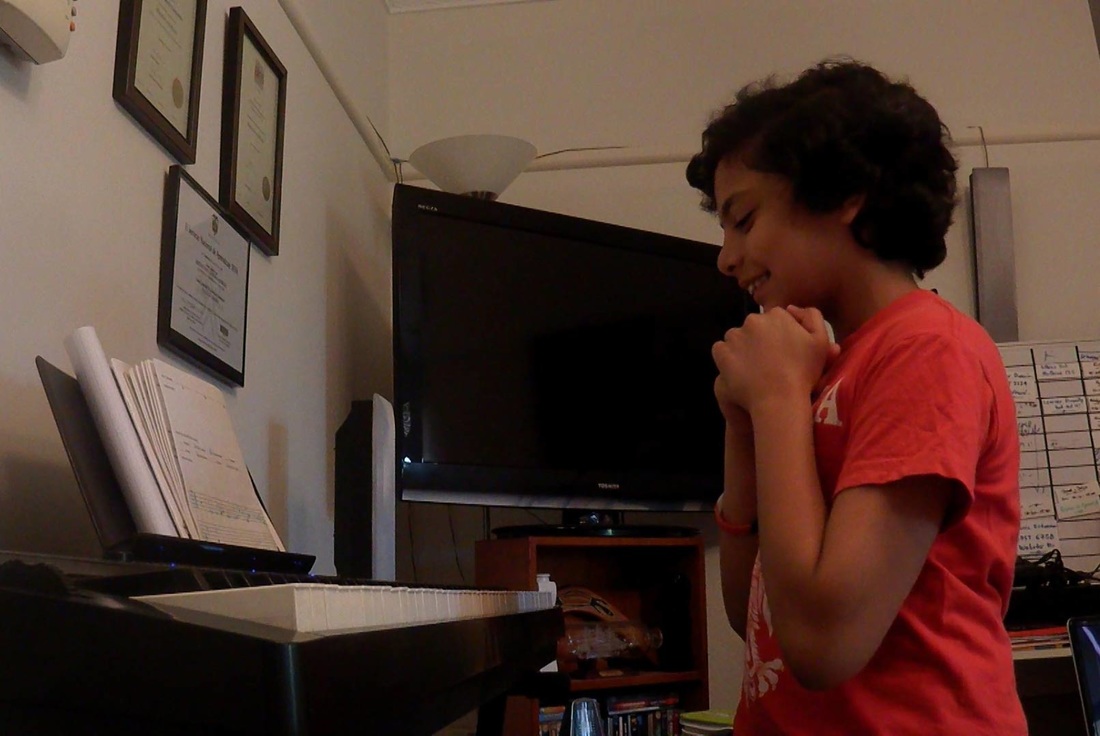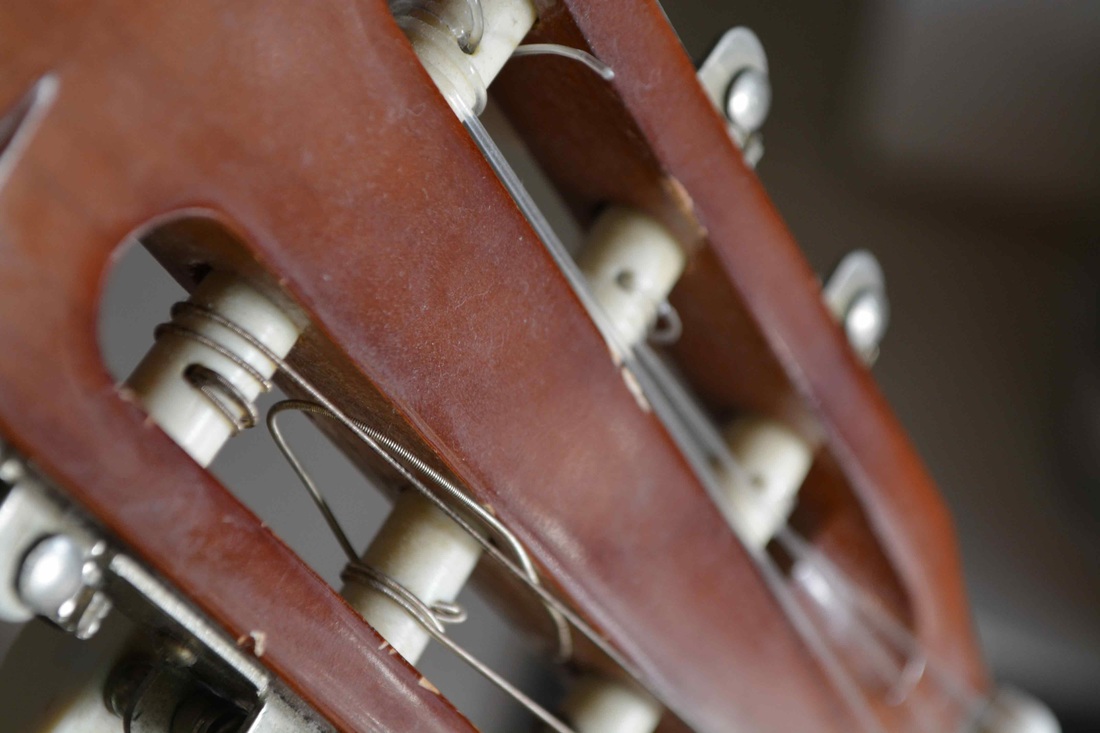by Cristian Contreras
We all know that practicing music can often fall into a boring routine similar to washing the car, mowing the lawn or cleaning the house. However Music is a unique art form which is meant to be enjoyed at all times. This includes the practice of music. So the next time you or your student is feeling bored about practicing, try the following 5 ideas for improved engagement.
1. Be Positive
Positive reinforcement all the way! Music is about making mistakes and learning from them, so encourage your students or yourself regularly by acknowledging the positives rather than focusing on the negatives. Look back at what you have accomplished thus far and how far you have come since that first lesson. Take pride in the repertoire you are working on and above all remember that not everyone has the dedication and discipline to learn the art of music, so value your special talent an gifts instead of giving up on them!
2. Self-Assess
I enjoy the traffic light system with my students. Green – Easy, yellow – medium, red – hard. Ask your students how they are finding their exercises or pieces in terms of easy, medium or hard. If they always answer easy green, then it is time to add more of a challenge to your practice so that it doesn’t get boring. Medium is a good place to be since it is not easy but still offers a level of comfort below difficult. When students constantly report back with hard red, then it may be time to differentiate the lesson and either slow it down, or work on a smaller section until confidence is achieved. The optimum level should be between medium and hard, however we all learn differently, so self-assess with the 3 levels and make adjustments to your practice. Don’t forget to reassure the student that they are improving and if they persevere, they will go on to achieve great things.
3. Songs Songs Songs
Focusing only on technique and exercises will eventually put anyone to sleep, myself included. It is important to apply that strong technique to actual repertoire. Hence, pick a song that you or your students enjoy then show them how to play it. Don’t be worried if your current level does not permit for you to play the song in its full glory, just differentiate to suit the purpose. For example, complete beginners can learn the bass notes to a chord progression in the chorus of their favorite song. As they advance, they can then learn the bass notes to the introduction and verse. Practice it at least 5-10 times before trying to play along with the recording. Intermediate musicians may learn some basic chords (easy non bar and triad versions) then perhaps combine a simple chord with a bass line or brief lick. Finally, advanced students should strum or pick away freely and play in time with the entire song. Pianists may learn melody in the right hand and chords in the left, whilst percussionists could learn all the fills within their piece.
4. Monkey see, Monkey do
Kids and adults alike love to copy. It’s much easier to copy someone else than to have to come up with everything on your own. So teachers, throw on a 12 bar blues track, then improvise using basic guide tones (b7, 1, b3) and start a simple call and response blues improvisation session where they listen then copy you. This is very easy and you can even accompany your students with your own instrument if you do not have tracks. Jamming along is one of the best experiences a teacher and pupil will ever have, so make the most of it. Play for them, start simple and ask them to copy some lines. Then up the ante if their abilities allow for it. If not, then just play and encourage them to follow along. Afterwards, commend them for their work and encourage them to improve.
5. Make goals relevant. Why should they care?!?!
Set relevant and meaningful goals then explicitly link them to set practice needs. Ensure that these goals mean something to the student, and for even better results, get the student to come up with their own goals for themselves. Here’s an example; Want to rock that sweet guitar solo from your favorite song? Then you need to master your pentatonic and major scales within the next 2 weeks. Here are 3 for you to try this week, remember to practice them each day for at least 5 days and use a metronome every time. Next week I will listen to you play, and if you have improved I will put on the track and you can play along to the first few bars. Keep this up and in 2 weeks time you will be able to play the entire solo! Now that’s a goal even I would want to achieve. Adjust the genre, level and practice requirements to suit you or your student’s individual needs.
These are my 5 tips for Contreras Music article. I would love to hear yours, so please leave a comment below then share this with everyone you know!
© 2016 Cristian Contreras.
www.ContrerasMusic.Com
We all know that practicing music can often fall into a boring routine similar to washing the car, mowing the lawn or cleaning the house. However Music is a unique art form which is meant to be enjoyed at all times. This includes the practice of music. So the next time you or your student is feeling bored about practicing, try the following 5 ideas for improved engagement.
1. Be Positive
Positive reinforcement all the way! Music is about making mistakes and learning from them, so encourage your students or yourself regularly by acknowledging the positives rather than focusing on the negatives. Look back at what you have accomplished thus far and how far you have come since that first lesson. Take pride in the repertoire you are working on and above all remember that not everyone has the dedication and discipline to learn the art of music, so value your special talent an gifts instead of giving up on them!
2. Self-Assess
I enjoy the traffic light system with my students. Green – Easy, yellow – medium, red – hard. Ask your students how they are finding their exercises or pieces in terms of easy, medium or hard. If they always answer easy green, then it is time to add more of a challenge to your practice so that it doesn’t get boring. Medium is a good place to be since it is not easy but still offers a level of comfort below difficult. When students constantly report back with hard red, then it may be time to differentiate the lesson and either slow it down, or work on a smaller section until confidence is achieved. The optimum level should be between medium and hard, however we all learn differently, so self-assess with the 3 levels and make adjustments to your practice. Don’t forget to reassure the student that they are improving and if they persevere, they will go on to achieve great things.
3. Songs Songs Songs
Focusing only on technique and exercises will eventually put anyone to sleep, myself included. It is important to apply that strong technique to actual repertoire. Hence, pick a song that you or your students enjoy then show them how to play it. Don’t be worried if your current level does not permit for you to play the song in its full glory, just differentiate to suit the purpose. For example, complete beginners can learn the bass notes to a chord progression in the chorus of their favorite song. As they advance, they can then learn the bass notes to the introduction and verse. Practice it at least 5-10 times before trying to play along with the recording. Intermediate musicians may learn some basic chords (easy non bar and triad versions) then perhaps combine a simple chord with a bass line or brief lick. Finally, advanced students should strum or pick away freely and play in time with the entire song. Pianists may learn melody in the right hand and chords in the left, whilst percussionists could learn all the fills within their piece.
4. Monkey see, Monkey do
Kids and adults alike love to copy. It’s much easier to copy someone else than to have to come up with everything on your own. So teachers, throw on a 12 bar blues track, then improvise using basic guide tones (b7, 1, b3) and start a simple call and response blues improvisation session where they listen then copy you. This is very easy and you can even accompany your students with your own instrument if you do not have tracks. Jamming along is one of the best experiences a teacher and pupil will ever have, so make the most of it. Play for them, start simple and ask them to copy some lines. Then up the ante if their abilities allow for it. If not, then just play and encourage them to follow along. Afterwards, commend them for their work and encourage them to improve.
5. Make goals relevant. Why should they care?!?!
Set relevant and meaningful goals then explicitly link them to set practice needs. Ensure that these goals mean something to the student, and for even better results, get the student to come up with their own goals for themselves. Here’s an example; Want to rock that sweet guitar solo from your favorite song? Then you need to master your pentatonic and major scales within the next 2 weeks. Here are 3 for you to try this week, remember to practice them each day for at least 5 days and use a metronome every time. Next week I will listen to you play, and if you have improved I will put on the track and you can play along to the first few bars. Keep this up and in 2 weeks time you will be able to play the entire solo! Now that’s a goal even I would want to achieve. Adjust the genre, level and practice requirements to suit you or your student’s individual needs.
These are my 5 tips for Contreras Music article. I would love to hear yours, so please leave a comment below then share this with everyone you know!
© 2016 Cristian Contreras.
www.ContrerasMusic.Com



 RSS Feed
RSS Feed
